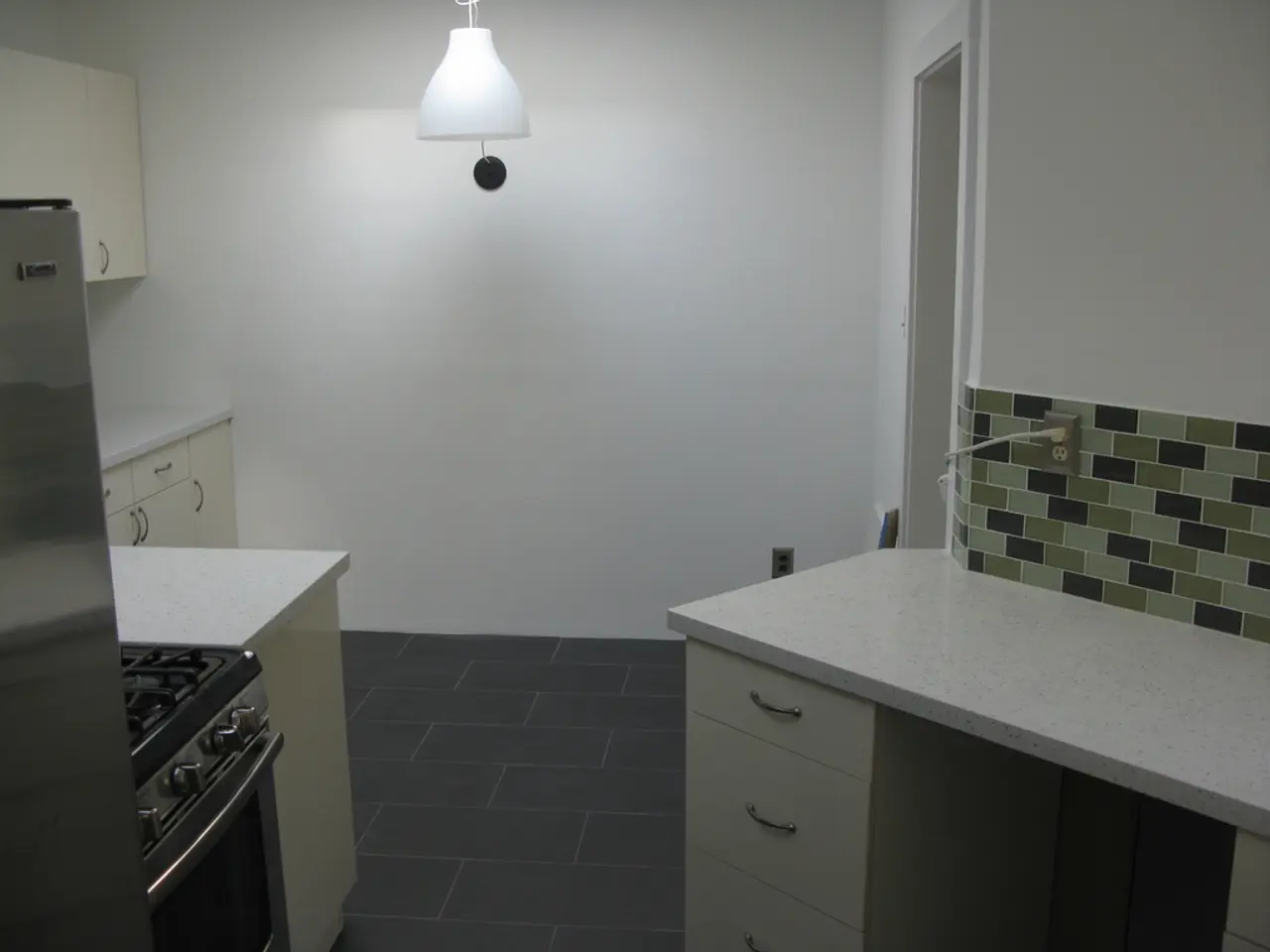Importance of Kitchen Ventilation: A Matter More Significant Than You Realize
A well-ventilated kitchen is essential for maintaining a healthy and comfortable home environment. Here's why:
Optimal Performance and Safety
Professional installation ensures that your kitchen ventilation system performs optimally, meeting safety and code requirements. This not only keeps your kitchen clean and fresh but also protects your family from potential hazards.
Health Risks of Poor Ventilation
Cooking produces air pollutants that can affect respiratory health. These pollutants, including fine particles, nitrogen dioxide, carbon monoxide, ultrafine particles, and volatile organic compounds (VOCs), can accumulate in your home's air if proper ventilation is lacking. Over time, exposure to these particles can contribute to respiratory problems, allergies, and other health issues.
Moreover, poor ventilation leads to moisture buildup, promoting mold growth. This further exacerbates respiratory allergies and asthma. Additionally, elevated indoor CO2 levels and accumulated irritants can impair cognitive function, cause headaches, fatigue, and negatively affect mental health over time.
Financial Implications
Cooking produces significant amounts of moisture and grease that can damage a home's structure and finishes over time. Ceiling damage from cooking moisture and grease can be costly to repair, often requiring professional repair and the repainting of entire rooms.
Moreover, poor kitchen ventilation creates costs that exceed the initial savings of skipping a quality range hood. These costs include cleaning, maintenance, repair, health care, energy, resale value, insurance, and entertainment costs.
Improved Air Quality and Comfort
Good kitchen ventilation improves temperature control, comfort levels, cooking confidence, food quality, entertainment possibilities, and family interaction. It also prevents cooking particles from circulating via the HVAC system, affecting air quality in various rooms.
Energy-Efficient Ventilation Choices
Energy-efficient ventilation choices, such as variable speed controls, timer controls, LED lighting, and heat recovery ventilation systems, can help reduce energy consumption while maintaining optimal ventilation.
Types of Kitchen Ventilation Systems
Understanding the differences between various types of kitchen ventilation systems, such as range hoods, under-cabinet range hoods, wall-mount range hoods, and island range hoods, helps choose the right solution for your cooking habits and kitchen layout.
Maintenance is Key
Regular maintenance, such as filter cleaning, interior cleaning, ductwork inspection, and fan motor maintenance, keeps the ventilation system operating at peak efficiency.
In conclusion, long-term poor kitchen ventilation contributes to chronic exposure to toxic indoor air pollution, affecting respiratory health, cardiovascular function, cancer risk, cognitive abilities, and overall well-being. It's crucial to invest in a properly installed and maintained kitchen ventilation system to ensure a healthy and comfortable home environment.
Sources:
- Study on improved cookstoves and respiratory health (PMC, 2025) [1]
- Indoor air quality impacts including respiratory and heart diseases, cognitive effects (SLBS, 2025) [2]
- Gas stove emissions linked to reduced lung function, asthma, premature deaths (The Cool Down, 2025) [3]
- Effects of indoor moisture and VOC build-up causing mold, headaches, and respiratory issues (Airerv, 2025) [4]
- Kitchen gas stoves emit cancer-causing benzene; children face higher cancer risk especially with poor ventilation (Times of India, 2025) [5]
- A well-ventilated kitchen, enhanced by energy-efficient appliances and modern styles, contributes to a home's overall lifestyle and quality.
- Optimal kitchen ventilation can help reduce the risk of airborne health-and-wellness issues resulting from cooking, such as respiratory problems and allergies.
- Maintenance of a kitchen ventilation system is vital for preventing energy inefficiency and promoting long-term health-and-wellness benefits, including fitness-and-exercise and skin-care.
- Proper ventilation in the kitchen can also improve air quality, impacting the freshness of the home-and-garden environment and the freshness of weekend meals prepared for family.
- When choosing a kitchen ventilation system, it is essential to consider factors like cooking habits, kitchen layout, and energy efficiency to select the most suitable solution for one's home and lifestyle.
- A well-ventilated kitchen not only ensures a comfortable living space but also protects the home's structure and finishes from damage caused by cooking-induced moisture and grease.
- Good ventilation can contribute to improved cognitive abilities, supporting learning and work productivity, while also helping maintain a pleasant and relaxed home environment that fosters enjoyment and entertainment during meal preparation and interaction.




